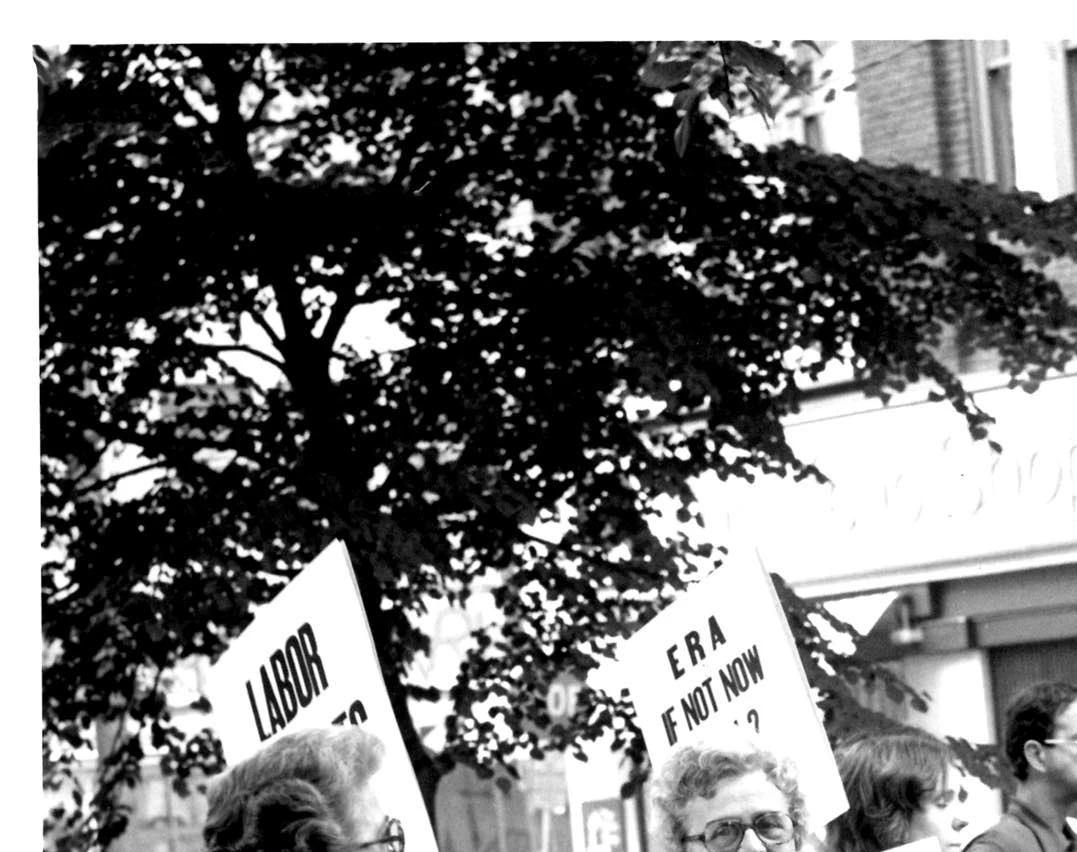 By Daniel Payne
By Daniel Payne
CNA Staff, Jan 17, 2025 / 15:05 pm
Legal experts on Friday criticized President Joe Biden’s apparent attempt to unilaterally ratify the Equal Rights Amendment (ERA), with scholars dismissing the move as “unserious” and a “stunt.”
The president on Friday morning proclaimed that the ERA — a long-debated constitutional measure that abortion advocates have said could help legalize abortion nationwide — is “the law of the land.”
Biden’s declaration appeared to carry no legal weight. U.S. Archivist Colleen Shogan — who is officially charged with entering an amendment into the Constitution upon its ratification — has said the amendment failed to make the congressional deadline of June 30, 1982, set by Congress.
Shogan said she “cannot legally publish the Equal Rights Amendment” and that it “cannot be certified as part of the Constitution.”
The amendment holds that “equality of rights under the law shall not be denied or abridged by the United States or by any state on account of sex.” It was first proposed over a century ago in 1923.
‘Of no legal effect’
Robert George, the McCormick Professor of Jurisprudence at Princeton University, argued that the statement was a “stunt” that carried no legal force.
Pointing to Biden’s awarding the Presidential Medal of Freedom to former Planned Parenthood CEO Cecile Richards and his pardoning of his son Hunter Biden, George said that with the ERA declaration the president has “pile[d] disgrace upon disgrace on himself” in the waning days of his administration.
“Of course, Biden’s declaration that the Equal Rights Amendment has been ratified is of no legal effect,” he said. “It’s nothing more than one man’s idiosyncratic (and, I strongly suspect, insincere) opinion.”
Carrie Severino, president of the Judicial Crisis Network and a former Supreme Court clerk for Justice Clarence Thomas, said the pronouncement was “typical of how [Biden] has operated.”
“It’s an unserious attempt to rile up extremists in his base on his way out the door,” she said, arguing that the declaration was “legally meaningless and indefensible.”
“Everyone from Justice [Ruth Bader] Ginsburg to the National Archives has acknowledged that the amendment ratification deadline expired in 1982,” she said.
She pointed out that the amendment’s expiration occurred “so long ago that Biden was still the junior senator from Delaware.”
In 2020, Virginia became the 38th state to ratify the amendment, which nominally cleared the necessary threshold of three-fourths of the states needed to amend the U.S. Constitution. But shortly afterward Ginsburg told an audience at the Georgetown University Law Center that Virginia’s vote had come “long after the deadline passed.”
“I’d like it to start over,” the justice, who died in September of that year, told the audience.
On Friday the National Archives office reiterated the amendment’s dead-letter status. The office in a statement to CNA pointed to its earlier statement on the amendment deadline’s expiration, which occurred more than 40 years ago.
(Story continues below)
Subscribe to our daily newsletter
“This is a long-standing position for the archivist and the National Archives. The underlying legal and procedural issues have not changed,” the office said.
Andrea Picciotti-Bayer, director of the religious freedom nonprofit the Conscience Project, argued that Biden’s declaration was motivated by both LGBT and abortion politics. She pointed to the White House’s earlier redefinition of federal sex discrimination rules to include “gender identity.”
“Biden’s announcement has nothing to do with advancing the interests of women and girls in America,” she told CNA. “Instead this is nothing other than a brazen attempt to inject gender ideology and abortion into the Constitution.”
The U.S. bishops, meanwhile, have expressed concern over the ERA. In a March 12, 2021, letter, the bishops urged members of Congress to vote against eliminating the deadline for the amendment, with the prelates citing the amendment’s possible advancement of abortion and gender ideology.
“If the ERA were intended to have a more limited scope, it is unclear why federal and state law, which already forbids sex discrimination in so many areas, is not already adequate to that task,” the bishops said, pointing out that courts “generally do not construe constitutional provisions to mean nothing or to add nothing to the law.”
What happens next regarding the measure is unclear. An administration official told media on Friday that the archivist’s role in amending the Constitution is “purely ministerial,” suggesting that the White House might believe the archivist’s refusal to publish the amendment is immaterial.
Robert George, meanwhile, said Biden’s apparent effort to unilaterally ratify the amendment was “sad to see.”
It “speaks poorly of a man holding the office of president of the United States,” George said.
Daniel Payne is a senior editor at Catholic News Agency. He previously worked at the College Fix and Just the News. He lives in Virginia with his family.




